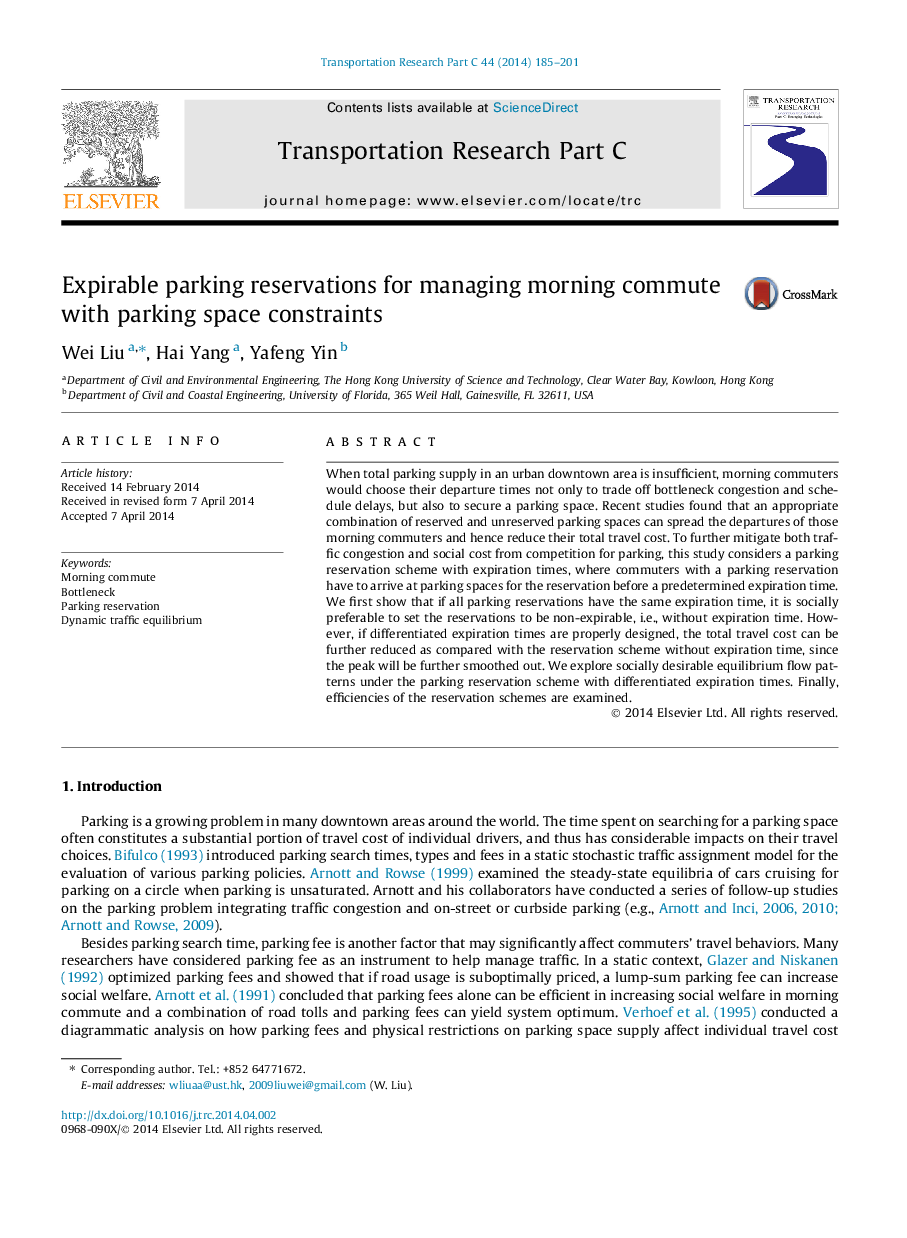| Article ID | Journal | Published Year | Pages | File Type |
|---|---|---|---|---|
| 524794 | Transportation Research Part C: Emerging Technologies | 2014 | 17 Pages |
•Expirable parking reservation is proposed.•Expiration times of reservations should be large enough if they are identical.•Differentiated reservation further reduces total travel cost.•Efficiencies of the expirable parking reservation schemes are examined.
When total parking supply in an urban downtown area is insufficient, morning commuters would choose their departure times not only to trade off bottleneck congestion and schedule delays, but also to secure a parking space. Recent studies found that an appropriate combination of reserved and unreserved parking spaces can spread the departures of those morning commuters and hence reduce their total travel cost. To further mitigate both traffic congestion and social cost from competition for parking, this study considers a parking reservation scheme with expiration times, where commuters with a parking reservation have to arrive at parking spaces for the reservation before a predetermined expiration time. We first show that if all parking reservations have the same expiration time, it is socially preferable to set the reservations to be non-expirable, i.e., without expiration time. However, if differentiated expiration times are properly designed, the total travel cost can be further reduced as compared with the reservation scheme without expiration time, since the peak will be further smoothed out. We explore socially desirable equilibrium flow patterns under the parking reservation scheme with differentiated expiration times. Finally, efficiencies of the reservation schemes are examined.
